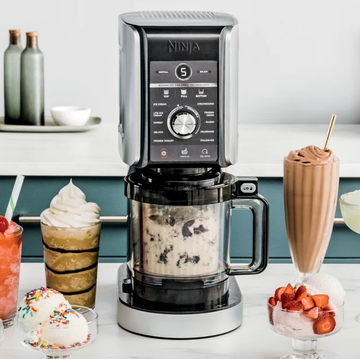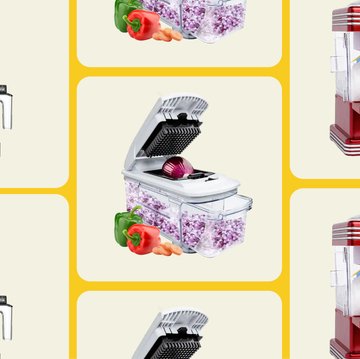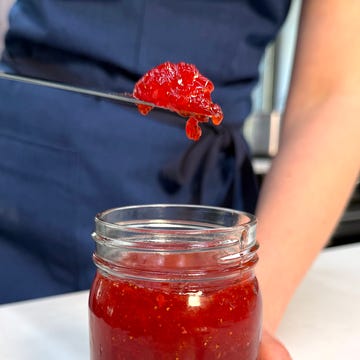Vegetable oil is one of those forgotten ingredients. It's never a dish's star ingredient or the source of crave-able flavor (because it doesn't really have a flavor—more on that later). But it's nonetheless super important: Without vegetable oil, there's no deep frying. Cakes bake up dry and unappetizing. Salad dressings lack that special emulsified something. You get the picture.
So what's a person to do when, halfway through a recipe, they reach into the pantry and find the bottle of vegetable oil empty? Breathe easy, you probably have on hand any number of substitutes that can act as a perfect stand-in, depending on what you're making. Here's what you need to know.
What Is Vegetable Oil?
"Vegetable oil is a common name for oils that are from lots of different plant sources, whether it's corn, soybean, whatever, that's often mixed together," Delish's food director Rob Seixas said. It can also include canola and sunflower oil, but most of the time, the stuff is made from soybeans. "It's gone through a refining and heating process to become stable," he continued. It's mild in flavor and odorless, a.k.a. a neutral oil.
Refined Vs. Unrefined Oils
An unrefined oil is another name for a virgin oil, which means it's been pressed or collected, but not treated with heat. Refined oils, on the other hand, have been treated with heat and therefore can withstand high temperatures, Seixas said. That's why refined oils are better for cooking and frying at high temperatures, because they have an elevated smoke point compared to unrefined oils and won't burn as easily.
Neutral Vs. Non-Neutral Oils
A neutral oil is an oil that won't impart flavor to whatever you are making. Think vegetable, grapeseed, canola, and corn oils. Conversely, non-neutral oils add plenty of flavor—things like olive, sesame, and walnut oils—and should be used in dishes that don't clash with them.
How To Substitute Vegetable Oil
Generally, various oils can be substituted for vegetable oil on a one-to-one basis. Before substituting willy-nilly, though, consider your recipe.
If you're frying or cooking with high heat:
Deep frying generally requires heating oils to a temperature between 350 and 375 degrees Fahrenheit, so it's key to choose an oil with a high smoke point that can take the heat.
Best oils for heat: corn oil, avocado oil, refined coconut oil, canola oil, sunflower oil, safflower oil, grapeseed oil, peanut oil (could add nutty flavor)
If you're baking a cake:
Vegetable oil is great for adding moisture to a cake or pastry. "It helps to tenderize pastries very well," Seixas said. It's often preferable to using butter, which unlike vegetable oil, contains water. "When water interacts with flour, it develops gluten, which can toughen things," he explained.
For recipes that call for vegetable oil, sub in a neutral oil that won't affect the dish's flavor. But don't worry so much about the smoke point, since it'll be mixed in with other ingredients and won't be heated directly.
A heads up: Sometimes you'll see ingredients like mayonnaise, yogurt, or applesauce suggested as baking substitutes, but unless a recipe specifically calls for it, Seixas warns bakers to steer clear. "You're not going to come out with the same product," he said.
Best oils for baking: safflower oil, canola oil, coconut oil, avocado oil,
If you're whisking up a salad dressing:
Using vegetable oils as a base for salad dressings is great because they provide bulk without imparting flavor, which allows a dressing's other ingredients to take center stage. As with baked goods, the smoke point doesn't matter, but now it's because there's no heat involved at all. You want to consider flavor, though. Using an olive or walnut oil? They impart grassy and nutty flavors, which is great if that's what you're going for. If not, keep things neutral and stick to a neutral oil.
Best neutral oils for dressings: canola oil, safflower oil
Best non-neutral oils for dressings: olive oil, walnut oil, pistachio oil, sesame oil, grapeseed oil
Keep this intel in mind the next time your bottle of vegetable oil unexpectedly runs out. There are plenty of great vegetable oil substitutes out there—and they're likely lurking in your own kitchen.












